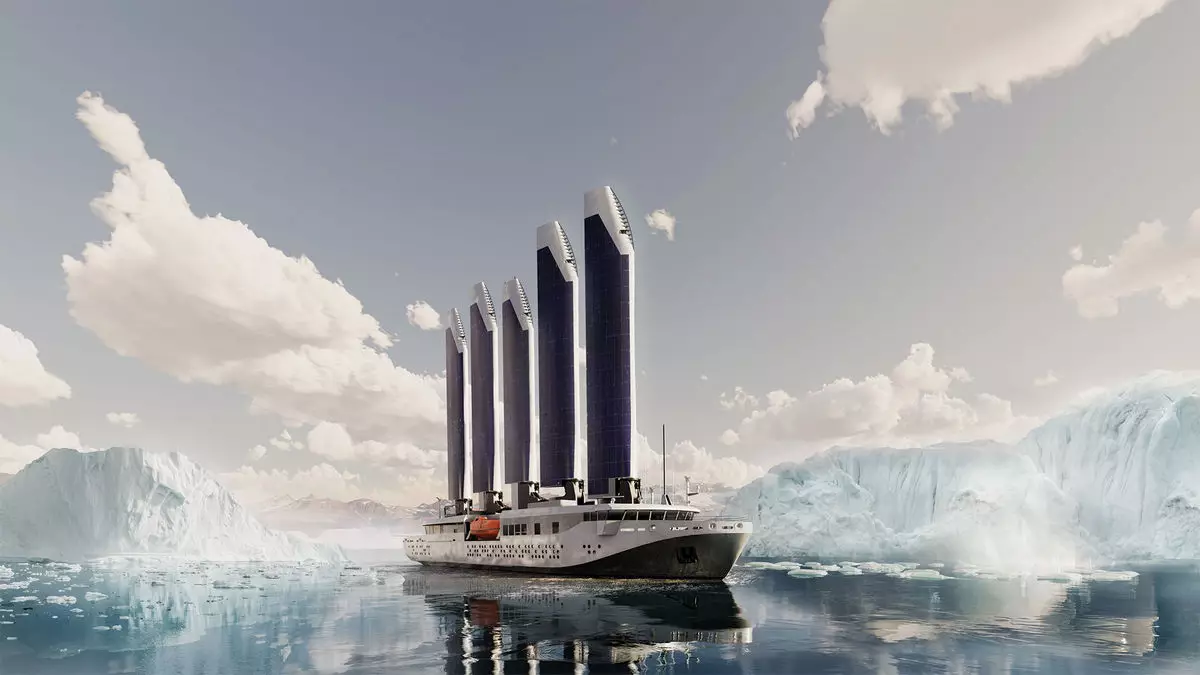In the competitive waters of the expedition cruising industry, the commitment to sustainability often clashes with the practicalities of pricing. Despite the growing hype surrounding eco-friendly practices, expedition cruise lines are hesitating to pass the costs of sustainable innovations onto their customers. This raises an intriguing question: Can environmental commitment go hand in hand with the economic realities of modern consumers? Few in the industry seem to think so.
Ashton Palmer, president of Expedition Trips, articulates a crucial point when he notes that the true value of sustainable practices lies not only in the preservation of marine ecosystems but also in the long-term benefits they bring to the business itself. Companies like Ponant, whose parent organization possesses vast resources, seem to approach the issue from a broader perspective. They are less concerned with immediate profits and more focused on establishing themselves as examples of luxurious ecotourism.
The Consumer Conundrum
A paradox exists in the marketplace: consumers often express a desire for sustainability yet remain unwilling to pay extra for it. Ponant’s CEO Samuel Chamberlain points out the discrepancy between public sentiment and actual purchasing behavior; many consumers advocate for eco-friendly options in theory but often prioritize cost over conscience when making decisions. Similarly, Hurtigruten’s COO Gerry Larsson-Fedde underscores that if cruise lines instituted higher prices based on sustainability, they risk losing customers to competitors that maintain lower fares.
This challenge isn’t just theoretical; it reflects a larger trend within the industry. The oversaturation of the expedition cruise market, particularly following the pandemic-related downturn, has created a hyper-competitive environment where traditional customer loyalty takes a back seat to price sensitivity. Claire Maguire, a specialist with Cruise Planners, observes this shift firsthand: potential travelers are less concerned about a line’s commitment to sustainability and more focused on what is included in their travel package.
Investing for Longevity
Despite the current market realities, it’s crucial to recognize that several expedition lines are investing heavily in sustainable technologies. Much of this is driven by practical business considerations and an eye towards longevity in a fragile ecological landscape. Hurtigruten, with a rich heritage spanning 130 years, aims to preserve the unique ecosystems that define its northern voyages. In doing so, the company views its investments in sustainable practices as critical to future-proofing their operations.
This sentiment is echoed by Hurtigruten’s COO when he highlights the benefits of reducing fuel consumption through greener technologies. The financial implications are significant: a reduction of emissions not only promotes environmental responsibility but also translates into decreased fuel costs in the long run—a win-win scenario.
Moving forward, innovative designs are on the horizon, like Ponant’s upcoming vessel powered by wind and solar energy, which demonstrates a commitment to minimizing environmental impact. With ambitious targets set for 2030, expedition cruise lines are betting on the fact that sustainable innovations can become profitable investments, provided they can strategically navigate the turbulent waters of market demand.
Customer Priorities
When it comes to choosing an expedition cruise line, the destination remains paramount for most travelers. However, burgeoning awareness surrounding sustainability practices has the potential to influence decision-making. For instance, the eco-conscious traveler who is keen on visiting Antarctica may be swayed by a cruise line’s commitment to reducing food waste, eschewing single-use plastics, or utilizing shore-to-ship power.
Gari Senderoff, a polar travel specialist, emphasizes that many customers are looking for guilt-free adventures. They hope to ensure that their voyages do not contribute to the environmental degradation that often accompanies tourism. Yet even with this awareness, many travelers focus on the overall experience rather than the sustainability metrics.
In contrast, emerging lines like Selar are attempting to directly address this gap. With a ship primarily powered by renewable sources and minimal reliance on biofuels, they are catering to those who place a high premium on sustainability. However, co-founder Sophie Galvagnon stresses that the responsibility for sustainable practices should not be transferred onto the consumer.
It’s a complex landscape, where operators navigate not only the financial difficulties of sustainability but also the expectations of environmentally conscious travelers. As the expedition cruise industry grapples with these challenges, it must innovate both in terms of technology and customer engagement to ensure it meets the expectations of the modern traveler.


Napsat komentář